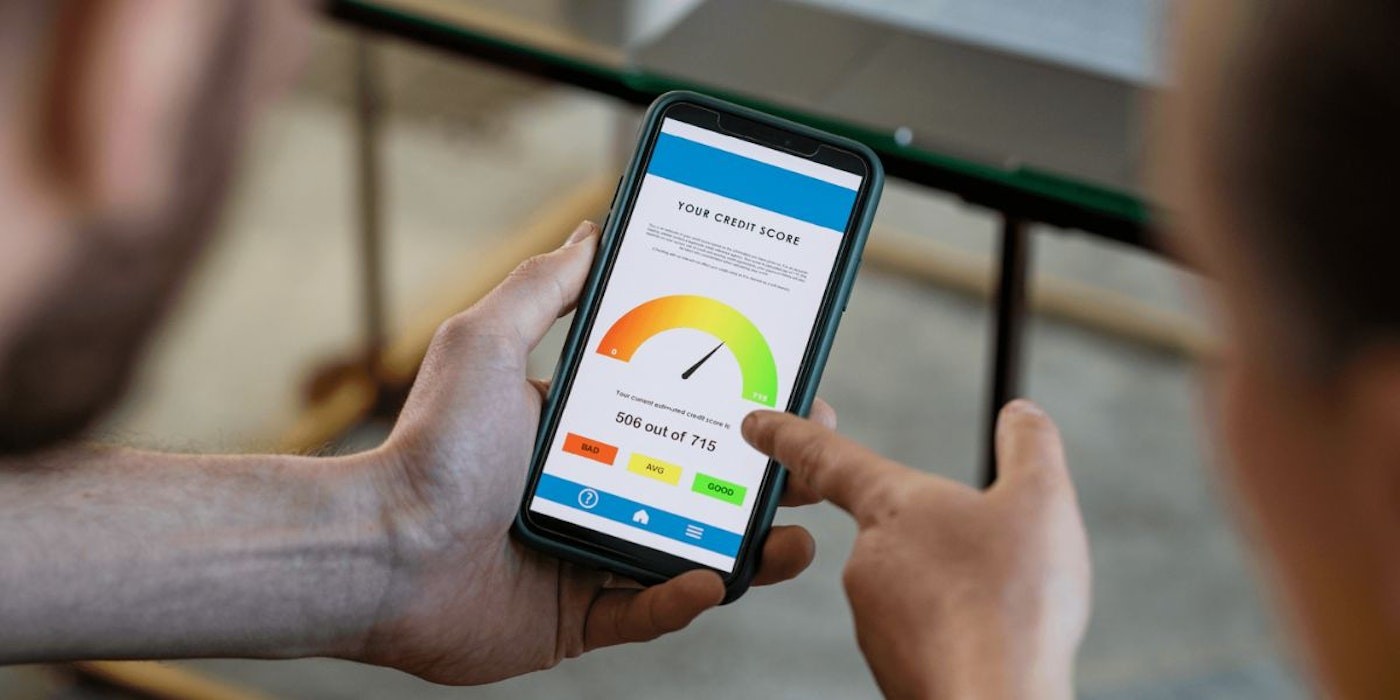Short-term vs Long-term Loans: Navigating Your Best Option

Choosing the right loan can have a significant impact on your financial future. When it comes to short-term and long-term loans, understanding the differences is crucial to make an informed decision. Factors such as the repayment period, interest rates, and loan duration play a vital role in determining which option is best suited to your needs and goals.
Key Takeaways:
- Short-term loans have a repayment period of one year or less, while long-term loans extend beyond one year.
- Short-term loans typically have higher interest rates compared to long-term loans.
- Short-term loans are suitable for immediate financial needs, while long-term loans are used for significant investments.
- Short-term loans offer quick access to funds and faster debt repayment, while long-term loans provide lower monthly payments.
- Weigh the risks and benefits of both options based on your financial situation and goals to make an informed decision.
Loan Repayment Terms and Monthly Payments


When it comes to loan repayment, the terms for short-term and long-term loans can vary significantly. Short-term loans typically require more frequent payments, commonly on a weekly or monthly basis, over a shorter repayment period. On the other hand, long-term loans offer extended repayment terms, resulting in lower monthly payments spread out over a longer duration.
The amount and duration of the loan also play a crucial role in determining the monthly payments for both types of loans. Short-term loans, which usually have a shorter repayment period, may have higher monthly payments compared to long-term loans. This is because short-term loans require borrowers to pay off the loan amount in a shorter time frame, leading to higher monthly instalments. On the other hand, long-term loans allow borrowers to spread the repayment over an extended period, resulting in lower monthly payments.

When considering loan options, it is essential to evaluate your financial situation, cash flow, and your ability to make regular payments. Understanding the loan terms and repayment period is crucial to make an informed decision that aligns with your financial goals and capabilities.
- Monthly payments: Short-term loans usually have higher monthly payments due to a shorter repayment period, while long-term loans offer lower monthly payments, allowing for easier budgeting and cash flow management.
- Loan terms: Short-term loans typically have more frequent payment schedules, while long-term loans offer extended repayment terms.
- Repayment period: Short-term loans require borrowers to repay the loan amount within a shorter period, often within a year or less, while long-term loans allow borrowers to spread the repayment over several years.
- Loan duration: The duration of the loan affects the monthly payments, with short-term loans typically requiring higher monthly instalments compared to long-term loans.
- Loan amount: The loan amount also impacts the monthly payments, with larger loan amounts typically resulting in higher monthly instalments for both short-term and long-term loans.
Impact of Loan Duration on Interest Charges

The duration of a loan plays a significant role in determining the interest charges you incur. When choosing between a short-term loan and a long-term loan, it's important to consider how this duration affects the overall cost of borrowing.
Short-term loans typically have higher interest rates compared to long-term loans. However, the shorter repayment period means that you ultimately pay less in interest charges. This is because the loan is paid off quickly, reducing the time for interest to accumulate.
On the other hand, long-term loans offer lower monthly payments due to their extended repayment periods. While this can provide more affordability in the short term, it also means that more interest accumulates over time, resulting in higher overall interest charges.
When deciding between a short-term loan and a long-term loan, it's essential to consider both the interest rates and the loan duration. Short-term loans may be a better option if you can afford higher monthly payments and want to minimise the total interest charges. Long-term loans, on the other hand, are more suitable if you prioritise lower monthly payments, even if it means paying more in interest charges over time.
Key points:
- Short-term loans have higher interest rates but lower overall interest charges due to their shorter repayment periods.
- Long-term loans have lower monthly payments but accumulate more interest over the extended repayment period.
- Consider your financial situation and goals when choosing between short-term and long-term loans, and evaluate the total cost of the loan, including interest charges.
Factors Affecting Loan Eligibility and Approval Process

When considering loan options, it's important to understand the factors that affect loan eligibility and the approval process. Both short-term and long-term loans have different criteria for approval, making it essential to evaluate your specific circumstances.
Short-term loans are often more accessible for individuals with lower credit scores. These loans typically have less stringent eligibility criteria, making them a viable option for those who may not meet the requirements of long-term loans. Additionally, short-term loan applications typically have a quicker approval process compared to long-term loans, providing faster access to funds.
On the other hand, long-term loans, especially those for larger amounts, may require a higher credit score and more extensive documentation for approval. Lenders want to ensure that borrowers have the financial stability and ability to repay the loan over an extended period.
Credit Score and Collateral Requirements

Your credit score plays a significant role in loan eligibility. Short-term loans may have more flexibility in credit score requirements, whereas long-term loans often demand a higher credit score to mitigate the risk of lending a larger amount over a longer duration.
Collateral requirements also vary between short-term and long-term loans. Short-term loans may not require collateral or have more lenient requirements, which can be advantageous for borrowers without significant assets. In contrast, long-term loans, particularly for substantial amounts, may involve collateral to secure the loan.
Loan Application Process

The loan application process differs in terms of complexity and documentation between short-term and long-term loans. Short-term loans tend to have a simpler application process, with fewer documents required for approval. This streamlined process ensures a quicker turnaround, allowing borrowers to access funds promptly.
However, long-term loans typically necessitate more extensive documentation, such as income verification, tax returns, and asset appraisals. Lenders carefully evaluate these documents to assess the borrower's financial stability and ability to meet the long-term repayment obligations.
By understanding the various factors influencing loan eligibility and the approval process, you can make an informed decision when choosing between short-term and long-term loan options. Assessing your credit score, collateral situation, and your ability to provide the necessary documentation will help you determine the best loan option for your specific needs.
Common Uses of Short-term and Long-term Loans

When it comes to borrowing money, short-term and long-term loans serve different purposes based on your specific financial needs. Understanding the common uses of each type can help you make an informed decision. Here are some typical scenarios where short-term and long-term loans are often utilised:
Short-term Loan Uses:
- Managing cash flow: Short-term loans can provide quick funds to cover temporary financial gaps or boost working capital for businesses.
- Meeting payroll obligations: Employers may consider short-term loans to ensure timely payment of employee salaries and maintain smooth operations.
- Handling unexpected expenses: Whether it's a home repair, medical emergency, or car breakdown, short-term loans offer immediate financial relief during unforeseen circumstances.
Long-term Loan Uses:
- Buying property: Long-term loans, such as mortgages, are commonly used to purchase homes, apartments, or commercial real estate.
- Financing large-scale projects: Whether you're starting a business or expanding an existing one, long-term loans can provide the necessary capital for infrastructure, equipment, and operational expenses.
- Funding business expansion: Entrepreneurs looking to grow their ventures may opt for long-term loans to finance expansion plans, hire additional staff, or launch new product lines.
Keep in mind that these are just examples, and your loan purpose may vary based on your unique circumstances. It's essential to assess your financial goals and determine which type of loan aligns best with your needs.
Evaluating the Risks and Benefits of Short-term and Long-term Loans

Each type of loan comes with its own set of risks and benefits. It's important to carefully consider these factors before making a decision. Let's take a closer look at the advantages of short-term loans and long-term loans:
Advantages of Short-term Loans:
- Quick access to funds when you need them most.
- Ability to pay off the debt sooner, reducing your financial obligations.
Advantages of Long-term Loans:
- Lower monthly payments, making it easier to manage your budget.
- Extended repayment periods, providing flexibility and more time to pay off the loan.
However, it's important to consider the potential risks associated with each type of loan:
Risks of Short-term Loans:
- Higher interest rates compared to long-term loans, which can increase the overall cost of borrowing.
- More frequent payments, which may strain your cash flow and financial resources.
Risks of Long-term Loans:
- Accumulation of more interest over time, potentially resulting in higher overall interest charges.
- Extended repayment periods, which means being in debt for a longer period.
When evaluating the risks and benefits of short-term and long-term loans, it's crucial to take into account your unique financial situation and goals. Consider the loan amount, interest rates, repayment terms, and your ability to meet the financial obligations. By carefully weighing the pros and cons, you can make an informed decision that suits your needs and helps you achieve your financial objectives.
Conclusion
When it comes to making a loan decision, it's important to carefully consider your options and choose the best loan option for your specific financial needs and goals. The comparison between short-term and long-term loans is crucial in determining the most suitable choice for you.
Factors such as loan duration, monthly payments, interest charges, eligibility requirements, and the purpose of the loan should all be taken into account. Short-term loans generally have a shorter repayment period and higher interest rates, but they offer the advantage of paying off the debt sooner. On the other hand, long-term loans come with extended repayment periods and lower monthly payments, but they accrue more interest over time.
To make an informed loan decision, it's advisable to evaluate your financial situation and consult with a financial advisor if needed. They can provide guidance tailored to your specific circumstances and help you choose the best loan option for your needs. Additionally, carefully reviewing the terms and conditions of any loan is essential to fully understand the obligations and responsibilities involved.
Overall, by considering the loan duration, monthly payments, interest charges, eligibility requirements, and the purpose of the loan, you can confidently make the best loan decision for your financial future. Take the time to assess your options, seek professional advice if necessary, and make a well-informed choice that aligns with your financial goals.
How Driva Can Help You Finance Your Next Vehicle Purchase
Looking to finance your next vehicle purchase? Driva can help you find the right loan type to suit your needs. Whether you need a car loan, term loan, personal loan, or business loan, Driva compares 30+ lenders to get you the best personalised rates. When deciding between a short-term vs long-term loan, it's important to consider your business needs and pay back capabilities. While a short-term loan may seem appealing with quick repayments, you could end up paying more over the life of the loan compared to a longer term alternative. Driva ensures a transparent process with no hidden fees, making it easier to find the right loan for you.
Frequently Asked Questions
What is the difference between short-term and long-term loans?
Short-term loans typically have a shorter repayment period, often less than a year, while long-term loans have a longer repayment period, usually spanning several years.
How do I determine whether a short-term or long-term loan is right for me?
Consider factors such as the amount you need to borrow, your ability to repay the loan, and your financial goals to decide which type of loan best suits your needs.
Is it better to apply for a short-term or long-term loan for a small business?
Small businesses may benefit from short-term loans for immediate cash flow needs, while long-term loans could be more suitable for larger investments or expansion plans.
Can I get a short-term loan for purchasing a car?
Yes, short-term car loans are available for those looking to finance a vehicle for a brief period, typically up to a few years.
What are the advantages of long-term business loans over short-term business loans?
Long-term business loans often offer larger loan amounts, lower interest rates, and more flexible repayment terms compared to short-term business loans.
When should I consider seeking the help of a finance broker for long-term versus short-term business financing?
A finance broker can assist in comparing options and finding the best loan terms, whether you are seeking long-term or short-term financing for your business.
What are the differences between short-term and long-term commercial finance?
Short-term commercial finance is typically used for immediate needs like cash flow or inventory management, while long-term commercial finance is suitable for large investments or long-range business plans


.png)







